From June 1, business households will officially have to use electronic invoices attached to cash registers, a move that is expected to contribute to increasing transparency and efficiency in tax management. Experts say that completely eliminating the lump-sum tax mechanism to switch to tax collection based on actual revenue will face many obstacles if there is no careful preparation.
The abolition of the lump-sum tax was a revolutionary step.
Dr. Ngo Minh Vu, lecturer at Ho Chi Minh City University of Economics (UEH), said that the elimination of lump-sum tax shows the determination of the State to reform synchronously, aiming to improve the efficiency of tax management and encourage business households to switch to a more professional and methodical operating model.
In the context of the economy strongly transforming towards digitalization, lump-sum tax - which is only a temporary solution - is increasingly revealing weaknesses, especially in ensuring transparency and fairness among taxpayers.
For the transition to take place smoothly, the authorities need to quickly develop specific and accessible support mechanisms, including: simple technical guidance, user-friendly declaration tools and reasonable financial incentives to encourage business households to voluntarily change. At the same time, communication, training and dissemination of knowledge about tax declaration should be focused on to create a foundation of social consensus.
In the long term, the goal is to bring all business households into the unified tax management system, have their own tax codes and make periodic declarations through a digital platform.
“However, to realize this, it requires close coordination between the tax sector, market management forces and local authorities, along with a clear and flexible implementation roadmap, suitable for each target group and local characteristics,” said Mr. Vu.
Lump-sum tax - which is only a temporary solution - is increasingly revealing its weaknesses (Illustration: Nguyen Vy).
Mr. Mai Son, Deputy Director of the Tax Department ( Ministry of Finance ), in a recent discussion, also acknowledged that the lump-sum tax form has revealed some limitations, as well as not providing the necessary motivation for business households to develop their production and business scale.
According to Mr. Son, the abolition of the lump-sum tax is a revolutionary turning point in tax management for business households. The transition from lump-sum to declaration is not only a change in the method of tax calculation, but also a fundamental change in management thinking, in the way tax authorities accompany taxpayers.
This helps to accurately reflect business capacity and ensure the principle in the Tax Administration Law: “Taxpayers self-declare, self-pay, and self-responsible”. This is a step in line with the current trend of digital transformation and electronic tax management, helping to combat fraud and tax losses more effectively and creating a healthy competitive environment.
Previously, many business households were used to paying lump-sum taxes, so they did not pay attention to bookkeeping and revenue transparency. When lump-sum taxes were abolished, business households were forced to implement accounting books, invoices and vouchers like the business household model using the declaration method or small and micro enterprises.
Need a separate legal framework for "big" business households
According to Resolution 198/2025 of the National Assembly, small and medium-sized enterprises will be exempted from corporate income tax for 3 years from the date of being granted the first Business Registration Certificate. This regulation aims to institutionalize the policy in Resolution 68 of the Politburo on private economic development.
According to Associate Professor Dr. Nguyen Huu Huan, Lecturer at Ho Chi Minh City University of Economics , the policy of exempting corporate income tax for the first 3 years for business households converting to enterprises is considered an encouraging incentive.
Business households must switch to declaring taxes based on actual revenue (Illustration: Manh Quan).
However, according to Mr. Huan, this policy has not really created a strong motivation as expected, because in reality, most business households are currently paying lump-sum tax - which is simple, stable and easy to estimate. When switching to a business model, they will have to face a series of more complicated procedures such as tax declaration, settlement, determination of valid costs, storage of documents, hiring accounting services, etc.
"Even many small businesses are struggling with tax procedures, so requiring business households that do not have accounting skills or legal knowledge to fulfill a series of new obligations is not simple," Mr. Huan commented.
He also said compliance costs can be a significant burden. Outsourcing accounting services, for example, can cost several million VND per month, which is not a small amount for many small businesses.
In addition to costs, legal risks are also a concern. Previously, businesses only had to pay a fixed monthly tax without having to worry about revenue and expense details. Now, with electronic invoices, revenue is fully recorded, but valid expenses are difficult to determine, which can easily lead to disputes when settling taxes or being fined if the declaration is incorrect.
From this reality, the expert believes that in order for the policy of converting business households into enterprises to be truly feasible and effective, in addition to tax exemptions and reductions, more practical support solutions are needed.
In particular, it is necessary to develop simple, accessible accounting software; clear, easy-to-understand declaration instructions; and minimize legal risks in the early stages of conversion. Otherwise, the policy, despite its good intentions, will be difficult to implement, and may even cause many businesses to hesitate and falter in the face of new requirements.
The abolition of lump-sum tax is expected to encourage business households to transform into enterprises, however, business households are still "afraid to grow" (Illustration: Huu Nghi).
According to economic expert Le Duy Binh, Director of Economica Vietnam, the policy of exempting corporate income tax for small and medium-sized enterprises for 3 years from the date of being granted the first Business Registration Certificate is a positive step, which will help small and micro enterprises, especially newly operating enterprises, have more resources to accumulate capital to "grow up".
However, according to Mr. Binh, the policy is not convincing enough for business households to convert to enterprises and does not solve the problems that business households are most concerned about when they convert. Because the benefits from tax exemptions and reductions are still in the future, while compliance costs after establishing an enterprise still have to be paid regularly.
According to Mr. Binh, the household business sector is diverse, from large-scale to small-scale businesses that only make a living. Therefore, to encourage household businesses to transform into enterprises, there needs to be a separate legal framework that is more suitable to the characteristics of small-scale businesses today. He said: "We cannot apply the model of a large, well-organized enterprise with a complex accounting system and management system to noodle shops, pho shops or hair salons..."
Mr. Binh proposed that the authorities study the formation of a reformed enterprise type in the Enterprise Law, suitable for business households to convert. Specifically, this type of enterprise will have reduced compliance costs, to match the current form of sole proprietorship.
The compliance costs Mr. Binh mentioned include: administrative procedures, legal regulations from business registration to operation, governance structure, accounting, financial reporting, social insurance, office and related issues...
According to Mr. Binh, it is necessary to popularize the type of business that converts from household businesses to individual businesses with the trend of reducing compliance costs to lower or equal to the level that household businesses are "burdening". "There are more than 5 million business households, but only a part of them have revenue of 1 billion VND/year or more. They operate as a sole proprietor, so the mechanism needs to be suitable for the total revenue, it cannot be too much cost", he emphasized.
“This model must be flexible enough to encourage business, but also clear enough to gradually bring them into the formal sector of the economy. The transformation from household businesses to enterprises will not need to be forced but will become an inevitable need according to market rules,” he said.
"And when the scale of operations increases, when there is a need to expand investment, raise capital or sign large contracts, they themselves will see the need to grow, to become a business," he said.
Source: https://dantri.com.vn/kinh-doanh/ho-kinh-doanh-ngai-len-doanh-nghiep-mien-thue-3-nam-co-du-xoa-diu-noi-lo-20250529115819059.htm



























































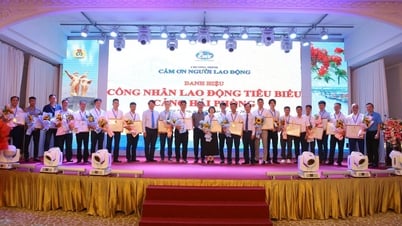




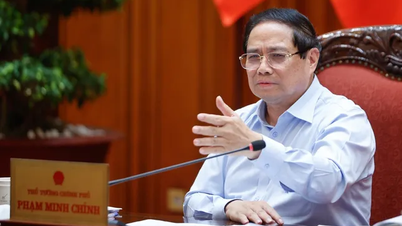




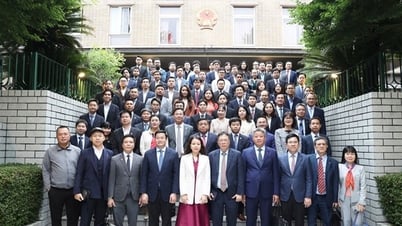





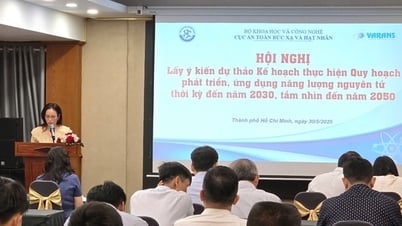




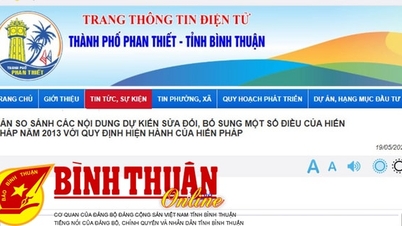





















Comment (0)